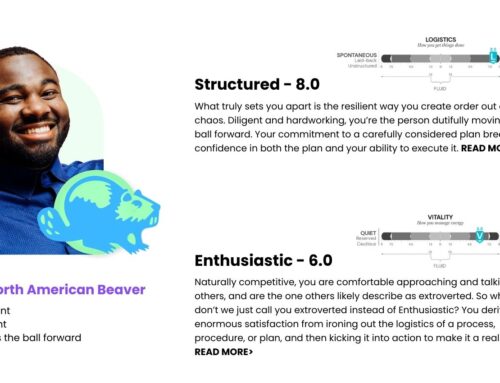The Prophet of the Pandemic
In a stroke of both coincidence and luck (his if not the world’s), Australian psychologist Steven Taylor published a new book, The Psychology of Pandemics just weeks before COVID-19 began its inexorable march across the globe.
Focused on the psychological impact of the Spanish Flu pandemic of 1917, the book has become something of a prophetic primer on how today’s global population has reacted to the pandemic, as well as what we might expect from future variants (and pandemics yet to come).
From Taylor’s perspective, pandemics are more about psychology than disease. Meaning that while, yes, the pandemic has certainly caused widespread illness and death, its ramifications are far greater on humanity’s collective mental health.
Taylor wrote the book in large part to help people prepare for the next pandemic, never imagining it would materialize so soon after the book’s publication.
In many ways Taylor said our reaction to the COVID-19 pandemic is eerily reminiscent of how people reacted in 1917, with one key difference: a digitally connected world coupled with a 24/7 news cycle.
He also believes we’ve mistakenly simplified the reason tens of millions of Americans have resisted the vaccines. “Vaccine hesitancy doesn’t really get at the motivational roots for why people don’t want to get vaccinated,” he told the Guardian.
Instead it has to do with a well-known psychological phenomenon known as psychological reactance – namely, an outside authority’s attempts to deprive people of their autonomy and freedom of choice. Not surprisingly, this is especially strong in a culture like that of the U.S., where individual freedoms and autonomy get to the core of who we are.
For this reason Taylor says anger and mandates are not the way to convince the unvaccinated to change their minds. “Psychological reactance has been an issue around any public health guidance, whether that’s increasing the intake of more fruit and vegetables, good dental hygiene or vaccinations and masks.”
Taylor’s cautionary note on the coming months? Repeated lockdowns, he said, may very well backfire even with the vaccinated. Lockdowns may indeed be “a necessary evil,” he said, “but if we have another wave when people have just gotten a taste of freedom it’s going to demoralize people and be bad for mental health.”
The Prophet of the Pandemic
In a stroke of both coincidence and luck (his if not the world’s), Australian psychologist Steven Taylor published a new book, The Psychology of Pandemics just weeks before COVID-19 began its inexorable march across the globe.
Focused on the psychological impact of the Spanish Flu pandemic of 1917, the book has become something of a prophetic primer on how today’s global population has reacted to the pandemic, as well as what we might expect from future variants (and pandemics yet to come).
From Taylor’s perspective, pandemics are more about psychology than disease. Meaning that while, yes, the pandemic has certainly caused widespread illness and death, its ramifications are far greater on humanity’s collective mental health.
Taylor wrote the book in large part to help people prepare for the next pandemic, never imagining it would materialize so soon after the book’s publication.
In many ways Taylor said our reaction to the COVID-19 pandemic is eerily reminiscent of how people reacted in 1917, with one key difference: a digitally connected world coupled with a 24/7 news cycle.
He also believes we’ve mistakenly simplified the reason tens of millions of Americans have resisted the vaccines. “Vaccine hesitancy doesn’t really get at the motivational roots for why people don’t want to get vaccinated,” he told the Guardian.
Instead it has to do with a well-known psychological phenomenon known as psychological reactance – namely, an outside authority’s attempts to deprive people of their autonomy and freedom of choice. Not surprisingly, this is especially strong in a culture like that of the U.S., where individual freedoms and autonomy get to the core of who we are.
For this reason Taylor says anger and mandates are not the way to convince the unvaccinated to change their minds. “Psychological reactance has been an issue around any public health guidance, whether that’s increasing the intake of more fruit and vegetables, good dental hygiene or vaccinations and masks.”
Taylor’s cautionary note on the coming months? Repeated lockdowns, he said, may very well backfire even with the vaccinated. Lockdowns may indeed be “a necessary evil,” he said, “but if we have another wave when people have just gotten a taste of freedom it’s going to demoralize people and be bad for mental health.”



